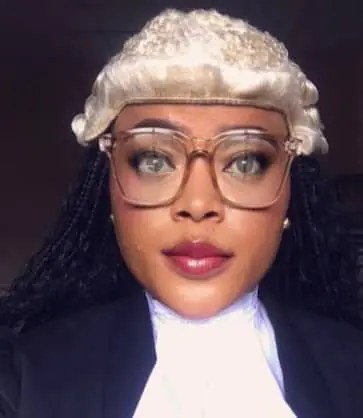
CASE TITLE: FADAC ENTREPRISES LTD & ANOR V. CHIZEA & ANOR
LPELR-60624(SC)
JUDGMENT DATE: 31ST MARCH, 2023
JUSTICES: MUSA DATTIJO MUHAMMAD, J.S.C.
CHIMA CENTUS NWEZE, J.S.C.
UWANI MUSA ABBA AJI, J.S.C.
MOHAMMED LAWAL GARBA, J.S.C.
HELEN MORONKEJI OGUNWUMIJU, J.S.C.
PRACTICE AREA: CONTRACT
FACTS:
This appeal borders on breach of contract.
This appeal is against the decision of the Court of Appeal, Abuja Judicial Division, which was delivered on November 23, 2014, which affirmed the judgment of the trial Court delivered on March 9, 2012, given in favour of the respondents.
The respondents had commenced an action at the High Court of the Federal Capital Territory, Abuja [“trial Court”], via a Writ of Summons against the appellants on March 21, 2010, seeking the following reliefs:
a) A DECLARATION that the defendants are in breach of the contract entered into with the plaintiffs and, as such, liable to pay the plaintiffs money sum due to them.
b) AN ORDER of this Honourable Court directing the defendants to pay the sum of N1,250,000.00 (One Million, Two Hundred and Fifty Thousand, Naira) respectively to the first and second plaintiffs being the sum of money due to them for performing their part of the contract with respect lawfully ejecting the recalcitrant tenants and bringing a potential buyer of Plot C12 Gado Nasko Road, Kubwa, Abuja, who offered the sum of N25,000,000.00k (Twenty Five Million Naira, only) but the defendants declined.
c) AN ORDER of this Honourable Court directing the defendants to pay the sum of N1,250,000.00 (One Million, Two Hundred and Fifty Thousand, Naira) respectively to the first and second plaintiffs being the sum of money due to them for performing their part of the contract with respect to the procurement of the Hotel Plot 401 Aviation Village Airport Road, Abuja and bringing a potential buyer who offered the sum of N280,000,000.00 (Two Hundred and Eighty Million, Naira) only.
d) Cost of this action.
The respondents’ position at the trial Court was primarily that the appellants, sometime in October 2006, precisely on October 26, 2006, formally entered into a documented agreement with the respondents pursuant to a series of discussions and negotiations the parties had previously. These were for the recovery of possession of the appellants’ property at No. C12 Gado Nasko Road Kubwa, Abuja. To sell the same, and further, the facilitation and procurement of land suitable for hotel plots as incorporated in the Tripartite Memorandum of Understanding, referred to as Exhibit “A” and Exhibit “C”, respectively. It was agreed that the respondents shall take five percent and ten percent, respectively, of the proceeds that will accrue from the sale of the property at C12 Gado Nasko Road Kubwa, Abuja. That is, after the respondents have ejected the tenants from the property and sold the same.
The parties agreed that the same five per cent and ten per cent, respectively, shall equally apply to the agreement to facilitate the procurement of land suitable for hotel plots that the appellants engaged the respondents to facilitate and procure for hotel purposes and to sell the same. The respondents, at the trial Court, testified that having fulfilled their part of the bargain, the appellants reneged in honouring their side of the contract, that is, the five per cent and ten per cent, respectively, regarding the property at C12 Gado Nasko Road, Kubwa and plot 401 Cadastral Zone EO 5 Aviation Village Airport Road, Abuja.
In a judgment which has occasioned grievance to the appellants, the trial Court found the evidence of the appellants to be contradictory and found in favour of the respondents. Dissatisfied with the decision of the trial Court, the appellants unsuccessfully appealed to the Court of Appeal. Hence the appeal to the Supreme Court.
ISSUES FOR DETERMINATION:
The appeal was determined on the following issues:
1. Whether the lower Court was right when it struck out the appellants’ grounds 2 and 3 as contained in their Notice of Appeal dated 24/5/2012 before it and issue 1 formulated therefrom on the ground that they did not emanate from the judgment of the trial Court?
2. Whether the lower Court was right in holding that the evidence of PW3 before the trial Court was not a professional communication between client and legal practitioner contrary to Section 192 (1) of the Evidence Act, 2011, and ought to be struck out?
COUNSEL SUBMISSIONS:
Learned counsel for the appellant’s quarrel in issue one is that the lower Court fell into a grave error when it struck out the appellant’s grounds 2 and 3 as contained in their Notice of Appeal before it.
According to learned counsel, the complaint in grounds 2 and 3 before the lower Court was not against the finding or opinion of the trial Court relating to the respondent’s relief “C” in their statement of claim but against the findings of the trial Court relating to the appellant’s counter-claim before it which it dismissed. It was further posited that the lower Court in striking out the appellant’s grounds 2 and 3 and issue no. 1 distilled therefrom, did not avert its mind to the existence of the appellant’s counter-claim. A counter-claim is a different and independent action from the main claim.
He further invited this Court to invoke Section 22 of the Supreme Court Act and Order 8 Rule 12 (1) of the Supreme Court Rules and assume the function/role of the lower Court in resolving issue one. Ladoja v. INEC [2007] All FWLR (pt. 377) 934, Inakoju v. Adeleke [2007] 4 NWLR (pt. 1025) 423, Dapianlong and Ors v. Dariye [2007] 8 NWLR (pt. 1036) 332, Obi v. INEC [2007] 11 NWLR (pt. 1046) 560, 640. He urged this Court to resolve this issue in favour of the appellant.
The Respondent’s counsel submitted that PW3 was the author of Exhibit “C”, and being a legal practitioner whose services were retained by the second appellant, PW3 cannot give evidence against the second appellant by virtue of Section 192 of the Evidence Act, 2011. He further relied on the following cases: Iris Winfred Horn v. Robert Rickard (1963) All NLR 486, 488, Oshunrinde v. Akande [1996] 6 NWLR (pt. 455) 383. Continuing, he argued that the testimony of PW3, which according to the learned trial Judge gave “support” to the evidence of PW1 and PW2 that made their evidence credible to warrant the grant of relief A, a declaratory relief, was an evidence inadmissible in law by virtue of Section 192 of the Evidence Act, 2011. He added that the purported testimony of PW3 cannot be substantiated or supported by pleadings of the respondents on record, C. N. Okpala and Sons Ltd v. Nigerian Brewery Plc [2018] 9 NWLR (pt. 1623) 16, 30. At the end, he urged this Court to resolve all issues in favour of the appellants and in consequence thereof, allow the appeal and set aside the judgment of the lower Court.
Submitting on issue two, it was contended that the nature of evidence adduced by the PW3, being a Legal Practitioner, does not contravene the provisions of Section 192 (1) of the Evidence Act. This is so because the law is settled that where the evidence or statement of the legal practitioner are on matters already known to the parties, the evidence or statements cannot be said to enjoy any privilege, Dawaki Gen. Ent. Ltd v. AMAFCO Ent. Ltd. [1999] 3 NWLR (pt. 549) 224.
It was further posited that it is not enough for the appellants to be agitating about the evidence given by the PW3 but are minimally required to show the statements or pieces of evidence given by the PW3 which were never known to the parties and was then relied upon by the trial Judge. He went on to submit that assuming that the nature of the evidence given by PW3 is in the class of inadmissible evidence, wrongful admission of inadmissible evidence is not of itself a ground for the reversal of any decision. He referred to the case of Ojengbede v. Esan [2001] 18 NWLR (pt. 746) 771, 971.
He further contended that the appellant’s submissions at paragraphs 7.0-7.6 of their brief did not stem from either the grounds of appeal or issue two raised for determination. The appellants did not appeal against the grant of relief B by the trial Judge and cannot late in the day, advance arguments thereon. He urged this Court to resolve this issue in favour of the respondents.
DECISION/HELD:
In the final analysis, the appeal was dismissed.
RATIO:
LEGAL PRACTITIONER- COUNSEL/CLIENT RELATIONSHIP: Position of the law as regards the rule of privilege communication between a legal practitioner and his client under Section 192 (1) of the Evidence Act, 2011; instances where the evidence or statement of a legal practitioner cannot be said to enjoy the same
“For ease of reference, Section 192 (1) of the Evidence Act, 2011, provides thus: – “192 (1) No legal practitioner shall at any time be permitted unless with his client’s express consent, to disclose any communication made to him in the course and for the purpose of his employment as such legal practitioner by or on behalf of his client, or to state the contents or condition of any document with which he has become acquainted in the course and for the purpose of his professional employment or to disclose any advice given by him to his client in the course and for the purpose of such employment provided that nothing in this section shall protect from disclosure – a) any such communication made in furtherance of any illegal purpose; or b) any fact observed by any legal practitioner in the course of his employment as such, showing that any crime or fraud has been committed since the commencement of his employment. (2) It is immaterial whether the attention of such legal practitioner was or was not directed to such fact by or on behalf of his client. (3) The obligation stated in this section continues after the employment has ceased.” A careful reading of Section 192 (1), (2) and (3), set out above, would reveal that what was envisaged is the disclosure of communication to a third party who is not a party to the purported transaction. The law is settled that where the evidence or statement of the legal practitioner are on matters already known to the parties, the evidence or statements cannot be said to enjoy any privilege, Dawaki Gen. Ent. Ltd. v. Amafco Ent. Ltd. [1999] 3 NWLR (pt. 594) 224, 236. Thus, the nature of the evidence of the PW3 does not contravene Section 192 (1) of the Evidence Act.” Per NWEZE, J.S.C.
To read the full judgment or similar judgments, subscribe to Prime or Primsol






